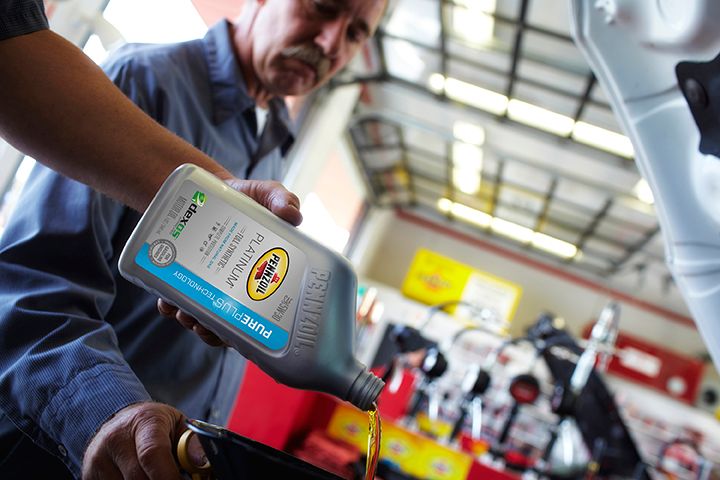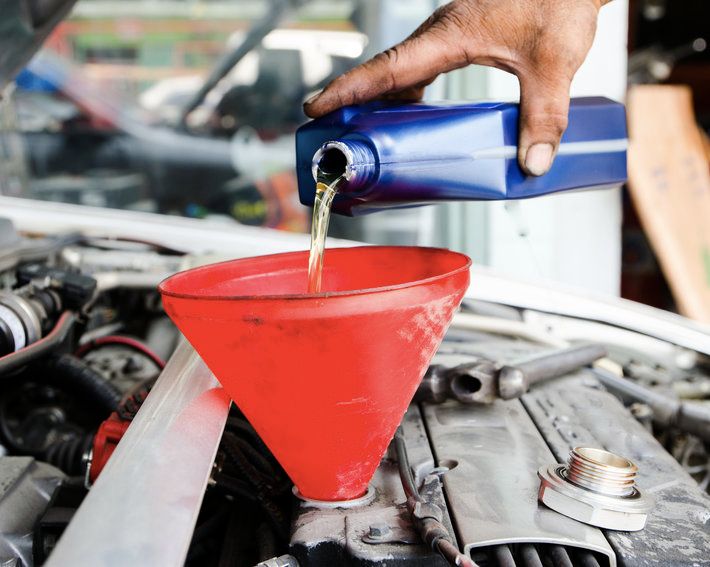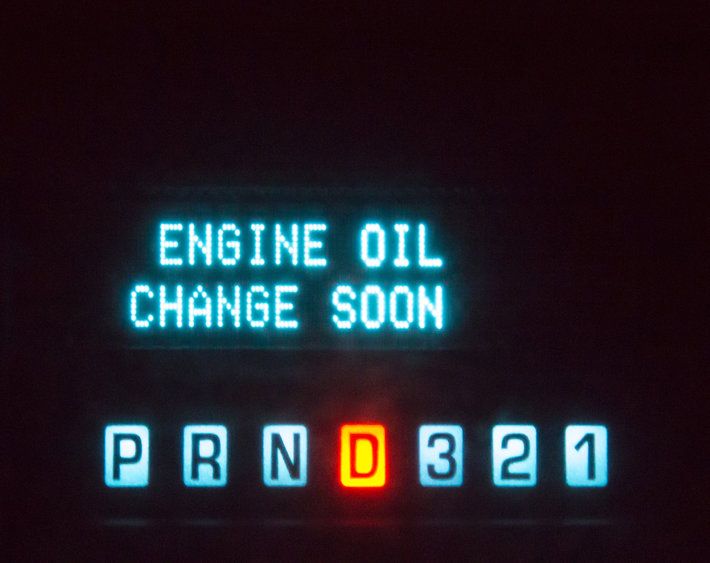From tire rotations to brake services, cars need a lot of TLC to stay in fighting form. One of the most important steps you can take to help your car run smoother, longer is to keep your engine's motor oil fresh and clean by remembering to bring it in for regular oil changes. Show your car some love and read on for answers to your most pressing oil change questions.
1. Why do I need an oil change?
Long story short? Your engine needs oil to run smoothly and avoid developing complicated (and expensive) issues down the road.
Longer story? There are three primary reasons your engine needs motor oil, and fresh motor oil on a regular basis too.
- First, oil lubricates all the moving pieces in your engine to keep everything running smoothly.
- Second, it helps stop your car from overheating (and smoking up the highway!) by reducing friction, transferring the heat, and absorbing by-products from combustion.
- Third, a correct oil level keeps everything flowing properly so the engine system doesn’t starve.
When your oil level gets too low or your oil gets too old, the engine's motor oil can’t properly perform these three functions and you could end up with nasty problems like decreased engine life, sticking piston rings, and overheating. By getting your oil changed regularly, you can keep your engine in good condition and provide the best protection for all of your engine’s bits and pieces.
2. When should I get an oil change?
Follow the specifications set by your vehicle manufacturer, as different engines have different needs. When you get an oil change, you’ll get a handy little sticker to remind you when to get your oil changed next, based on time or mileage. Traditional wisdom says you should get an oil change every 3 months or 3000 miles. (And, as always, bring your car in to get it checked out if you notice performance issues or oil spotting before that point.)
Is it time to get your oil changed? Schedule an appointment.
3. What happens during an oil change?
During an oil change, we do more than pour new oil in your engine. We’ll remove your old, gunky oil and replace it with a full synthetic oil, synthetic blend, conventional, or high mileage oil depending on your vehicle’s needs. We’ll also replace and recycle your oil filter and perform a courtesy inspection which includes fluid, light, and battery checks to make sure you drive away confident in your vehicle’s safety.
4. Why should I do a full oil change instead of just topping it off?
When you add new motor oil to bring your oil levels back up to normal, the old, sludgy, dirty oil doesn’t disappear—it’s just mixed with the new, fresh, clean oil. This puts more stress on the new oil and keeps it from working as well as it could. By all means, top off your oil if you’re in an emergency low-oil situation, but make sure to follow up with a full oil change!
5. Can I switch brands of oil between oil changes?
As long as the motor oil meets the viscosity grade and engine oil specification listed in your owner’s manual, switching motor oil will not be a problem. In fact, we recommend chatting with your technician to see if we have a motor oil that offers better performance than what you’re currently using! And yes, you can easily switch back-and-forth between synthetic and conventional motor oils!
6. What makes an oil change different for diesel cars?
Diesel motor oils contain higher amounts of additives than gasoline motor oils because diesel engines tend to be dirtier. When it comes to the labor involved, diesel engines don’t really require any extra care, though they do tend to need more frequent oil and filter changes.
7. Should oil be siphoned or drained?
Traditionally, oil changes involve draining the oil (aka using gravity to do all the dirty work). In recent years, a suction method (known as “siphoning”) has experienced a gain in popularity. These new siphoning machines, using a method adapted from motor boats, attach to the dipstick and suction oil out of the engine. There's some disagreement on which method removes oil the best, but everyone agrees that getting your oil changed is a must!
8. Is it better to change your oil when it's hot or cold outside?
Trick question: it’s important to change your oil year round. However if it is cold outside, you may want to run your engine for 5 minutes before the oil change so that the oil flows out of the drain plug easily when changing the oil.
9. Can cold weather affect when I need an oil change?
Always follow the vehicle owner’s manual to determine the proper oil drain interval. Oil drain intervals are NOT dependent on outside temperatures!
10. Can I change my own oil?
Not only is changing your own oil inconvenient (especially if you’re cozied up in a parka during these chilly winter months!), but it could also be risky and messy. A non-professional performing the service increases the risk of a mistake being made or a pre-existing issue being overlooked. Check out Why You May Want to Think Twice About Changing Your Own Oil for more reasons to trust a trained technician with your car’s engine.
Still have questions? Your trusted technician at your neighborhood Firestone Complete Auto Care has the answers. Stop by or give us a call today!


